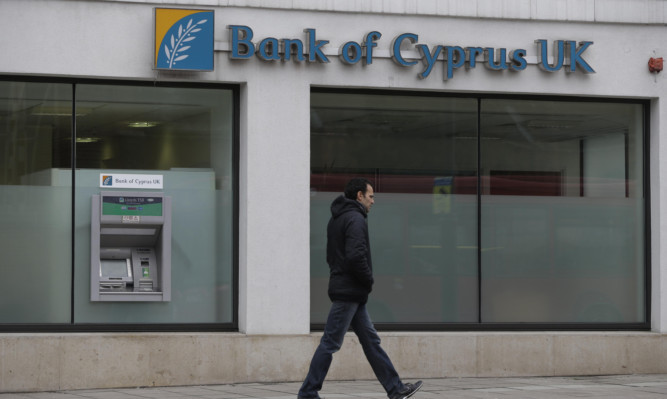Cyprus has clinched a last-minute solution to imminent financial meltdown by agreeing to take up to almost half of the bank savings of the wealthiest.
In return it secured a 10 billion euro (£8.5 billion) bailout.
The deal, described by the country’s politicians as “painful”, was agreed with euro finance ministers in Brussels just in time. The European Central Bank had threatened to cut off crucial emergency assistance to the Cyprus’s embattled banks if no agreement was reached.
Without that funding, Cyprus’s banks would have collapsed, dragging the country’s economy down with them and threatening its membership of the 17-strong eurozone all of which would have sent the EU’s markets spinning.
“It’s not that we won a battle, but we really have avoided a disastrous exit from the eurozone,” finance minister Michalis Sarris said.
Markets in Europe reacted positively, opening sharply higher. The mood in Nicosia was more sombre, however.
“This decision is painful for the Cypriot people. This decision was a defeat of solidarity, of social cohesion, which are fundamental freedoms, fundamental principles of the European Union,” Parliament president Yiannakis Omirou said.
“So as soon as possible we have to prepare our economy to go out from the mechanism and the troika,” he said, referring to the bailout agreement and the three-member delegation from the European Commission, International Monetary Fund and ECB who oversee implementation of bailout measures.
Banks in Cyprus have been closed for more than a week while politicians wrangled on how to raise 5.8 billion euros to qualify for the rescue. An alternative was needed after MPs defeated the initial plan which would have seized up to 10% of funds in people’s accounts in all banks.
Under the new plan, the bulk of the funds will be raised by forcing losses on wealthy savers in two of the country’s banks, with the remainder coming from tax increases and privatisations.
Laiki, the country’s second-largest bank, will be restructured, with all bond-holders and people with more than 100,000 euros (£85,000) in their accounts facing significant losses. Some estimates say up to 40% will be levied. The bank will be dissolved immediately into a bad bank containing its uninsured deposits and toxic assets, with the guaranteed deposits being transferred to the nation’s biggest lender, Bank of Cyprus.
Deposits at Bank of Cyprus above the 100,000 euro insured level will be frozen until it becomes clear to what extent they will also be forced to take losses. The money from those deposits will eventually be converted into bank shares.
The plan does not need extra approval from Cyprus’s parliament because the losses are part of a restructuring of the island’s banks – which would come under legislation passed last week – and not a tax.
The international creditors also said the country’s business model of attracting foreign investors, including many Russians, with low taxes and lax financial regulation had backfired and needed to be reformed. The country would also have to cut its budget, implement structural reforms and privatise state assets.
Russia’s prime minister on Monday slammed the deal, saying the agreement was tantamount to theft: “In my opinion, the stealing of what has been stolen continues there.”
